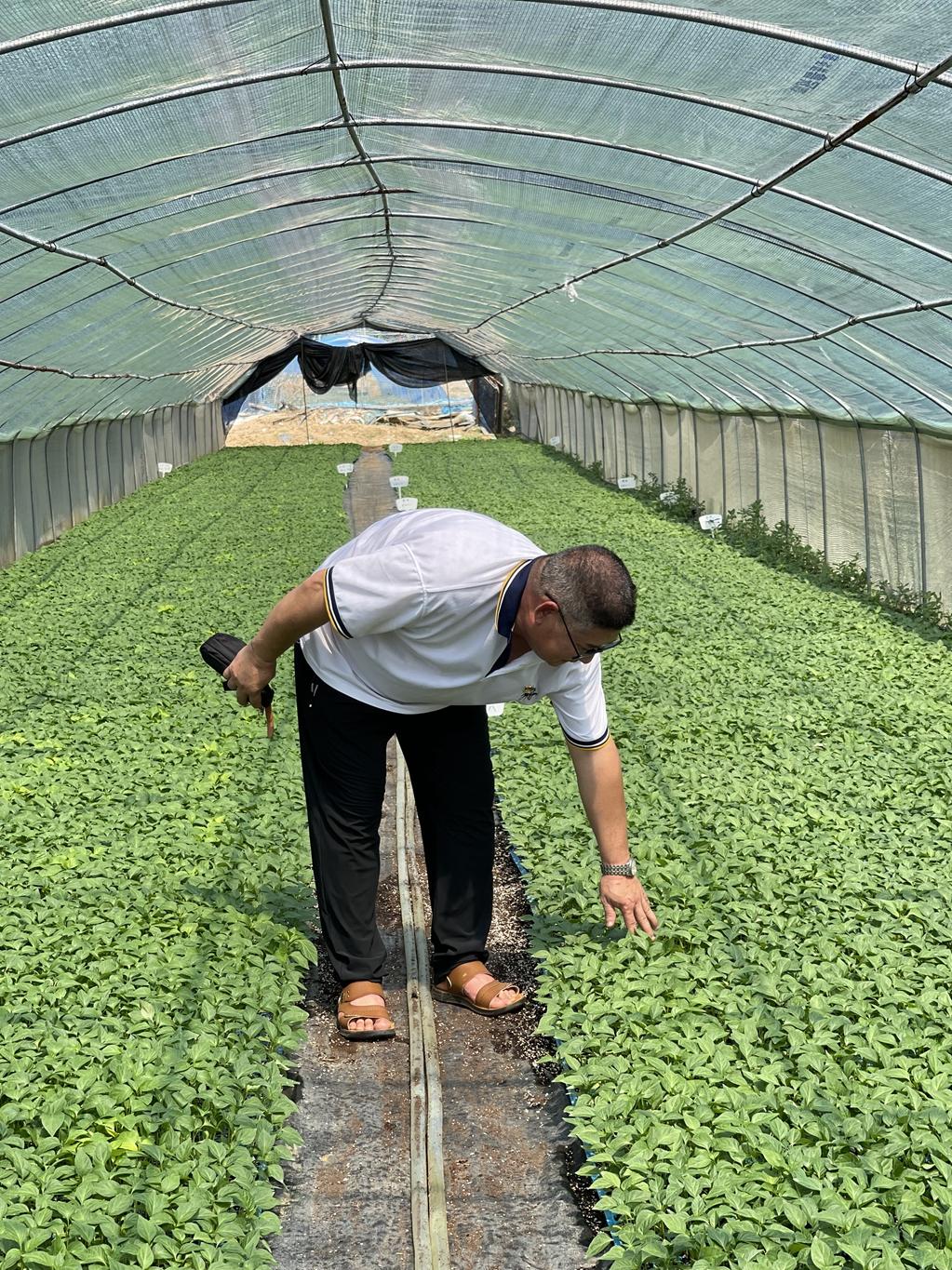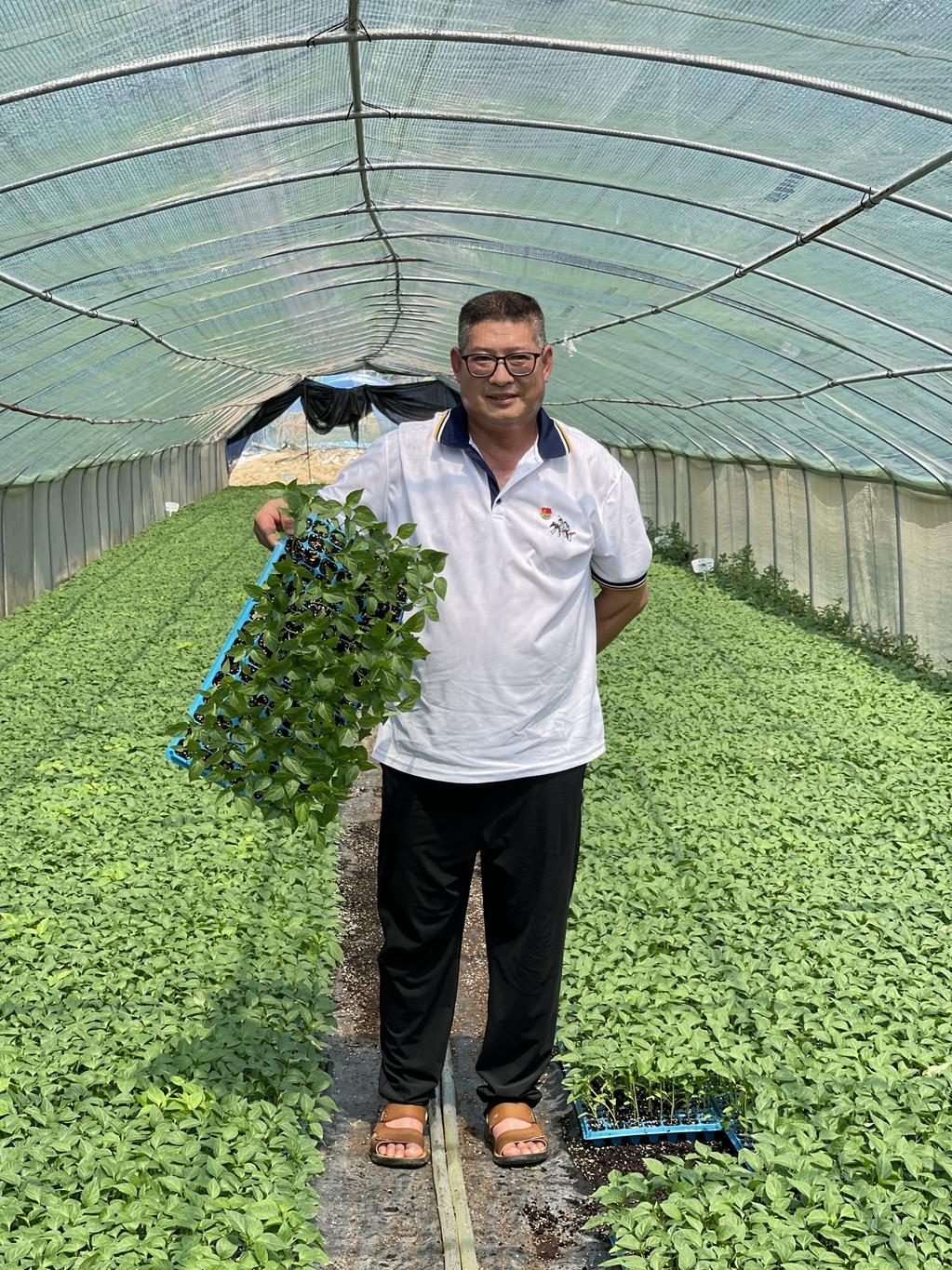Kejie: Where vegetables are exported, folks living in unity
“Thanks to the exceptional natural conditions of Kejie town and the supportive policies of the government, our vegetables have not only been sold to numerous cities within China, but also been exported to the international markets in Russia and others,” said Li Deshou.
Li, Party secretary of the Huaqiao community in Kejie town, southwest Yunnan’s Changning county, said this while inspecting the growth of peppers in the greenhouse, and he added the high-quality Kejie vegetables were supplied to the prestigious 2022 Beijing Winter Olympics.

Li Deshou inspects peppers in a greenhouse of Kejie town, southwest Yunnan’s Changning county, on September 24.
Kejie is an agricultural town nestled between mountains and basins, boasting a cultivated land area of 119,600 mu (around 7,973 hectares). The primary crops cultivated here include rice, off-season vegetables, corn, wheat, tobacco, sweet and crisp peas, as well as subtropical fruits.
In the winter, spring, and autumn seasons spanning from 2023 to 2024, it is anticipated that a total of 45,100 mu (3,006 ha) of vegetables will be planted, with an estimated yield of 69,800 tons and a projected output value of 351 million yuan.
Kejie’s Huaqiao is a major overseas Chinese community in Yunnan province. 91% of the 3,426 residents in Huaqiao are returned overseas Chinese and Li is one of the returned.
Li, whose family origins trace back to southeast Yunnan’s Wenshan Zhuang and Miao autonomous prefecture, returned to China from north Vietnam’s Ha Giang province in 1978, and he eventually settled down in Huaqiao community.
“Since our repatriation, we’ve forged unity and harmony with locals from all ethnic backgrounds, assisting one another in true camaraderie. Now, we’ve grown from ‘overseas Chinese’ to ‘local residents’ in this community,” Li noted.
Off-season vegetables constitute the main economic lifeline for Huaqiao. According to Li, the community used to rely on an extensive method of vegetable farming. This approach not only led to inconsistent vegetable quality but also imposed constraints on sales channels and market outreach.

Li shows pepper seedlings in a greenhouse of Kejie town, southwest Yunnan’s Changning county, on September 24.
Since the 1990s, Huaqiao has undergone agricultural transformation. The community actively introduced and promoted the technology of cultivating off-season vegetables in greenhouses. This innovation allowed farmers to break away from the constraints of natural conditions and achieve large-scale, intensive vegetable production.
At the same time, the community also improved farmers' cultivation skills by organizing technical training and providing scientific guidance, thereby enhancing the overall quality of off-season vegetables and increasing the yield per hectare.
These changes have brought more stable economic benefits to Huaqiao community. “Looking ahead, our vegetable industry will head towards a green and organic path, aiming to further increase the residents' income,” Li said.
Today, the returned overseas Chinese and their family members live and work in peace and contentment alongside local ethnic groups, making Huaqiao the most reassuring haven for them.
“I have witnessed remarkable changes in residents’ living conditions, with decent facilities accessible to all. Their average annual income has grown from 3,000 yuan in late 1970s to over 20,000 yuan today,” said Li.
Reporting by Zhang Min